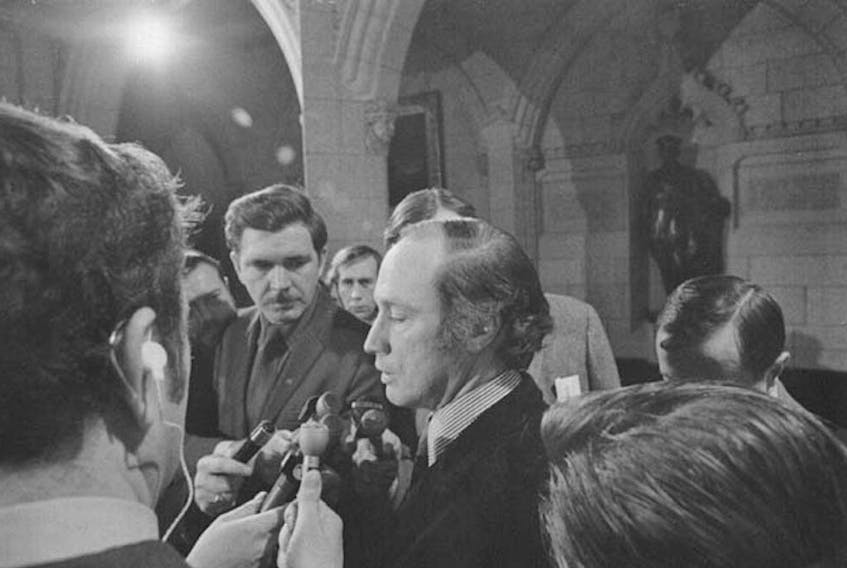Peter McKenna
Guest opinion
It’s hard to believe that the unnerving and controversial October Crisis in Canada happened 50 years ago.
While much has been written about the crisis itself, very little has been said about the role of the Cuban government in all of this.
Remember, in exchange for releasing British trade commissioner James Cross, the Front de libération du Québec (FLQ) had demanded safe passage to either Algeria or Cuba.
Inspired by the 1959 revolutionary victory of Fidel Castro in Cuba, and his unwavering commitment to Cuban independence, it was not surprising that FLQ militants would want to go to Cuba.
So, on Dec. 4, 1970, five FLQ terrorists (and one infant family member) landed at José Martí International Airport in Havana onboard a Canadian military aircraft.
Upon arrival, British diplomat James Cross was promptly released from capture (and dropped off at the Cuban pavilion at Canada’s former Expo site) with the assistance, under diplomatic immunity, of the Cuban consulate in Montreal.
In the late 1960s, though, some federal politicians in Canada sought to tarnish Cuba’s reputation by fabricating stories that Radio Habana Cuba had been broadcasting classes on guerrilla tactics to the province of Quebec in French.
There were other wild accusations, including some from the RCMP, that Cuba had been harbouring Quebec “subversives” and even that bomb-making terrorists from Quebec had been trained in Cuba. Of course, none of this was true.
In fact, when the FLQ terrorists eventually left Cuba for France in the late 1970s, they did so partly because the Cubans would not provide them with guerrilla training.
Members of the Cuban government made it very clear at that time that they would not take any action that could result in harm to Canada or Canadians.
It is worth mentioning here that there are obvious cultural and linguistic similarities been Quebeckers and Cubans.
There is the commonly referred to “Latin connection” between the two peoples of the Americas. And it is no coincidence that tourists from Quebec make up roughly half the total of Canadians who visit the Caribbean island annually.
Still, skilled Cuban diplomats, sometimes awkwardly, have mostly tried to keep their distance from the thorny Canada-Quebec national unity and separatist file.
While no doubt sympathetic to many of the Partí Québécois’s sovereigntist aspirations, the Cubans have always been careful not to undermine Cuba’s close relationship with the federal government.
Cuba’s assistance, it should be highlighted, was not without risks to that country.
Indeed, on Dec. 5, 1970, just after the release of Cross, the Cuban consulate in Toronto was firebombed by suspected anti-Castro exile groups.
It is also interesting to note that Ottawa had approached two other countries to see whether they would accept the FLQ kidnappers — only to be turned down flat.
That was when Canadian officials had little choice but to approach the Cubans for help.
The delicate negotiations would take roughly two months, with senior officials from both countries going back and forth on the precise details of the final arrangement.
Not surprisingly, the Canadian government was deeply appreciative of Cuban efforts to help defuse this difficult internal crisis.
In a subsequent letter to Cuban leader, Fidel Castro, prime minister Pierre Elliott Trudeau wrote: “On behalf of the Government of Canada I wish to express to you our sincere thanks for the co-operation extended by your Government in the arrangements leading to the safe release of Mr. James Cross.”
He went on to add: “The Canadian Government greatly appreciates the helpful attitude shown by the Cuban government throughout this situation.
I also understand that, in keeping with the good relations between our two countries, the individuals who have been given safe-conduct will not while in Cuba undertake any activity directed against Canada.”
The favourable resolution of the crisis was responsible, in part, for a substantial warming of diplomatic relations between the two countries.
The Cubans fully realized that they had earned some valuable diplomatic credit in the bank of Canada.
Not long after the FLQ crisis, both Canada and Cuba actually began negotiations on securing an important Hijacking Treaty.
Two years later, and after some difficult exchanges between officials, the Canada-Cuba Hijacking Agreement was signed in Ottawa.
After the diplomatic chill of Canadian-Cuban relations under prime ministers John Diefenbaker and Lester Pearson, the Trudeau years would prove to be far more constructive and amicable. There would be frosty periods, as under Jean Chretien and Stephen Harper, but the overall bilateral relationship would remain largely intact.
And that sense of respectfulness and friendliness, clearly established during the October Crisis, has continued right up until today.
Peter McKenna is professor of political science at the University of Prince Edward Island.









